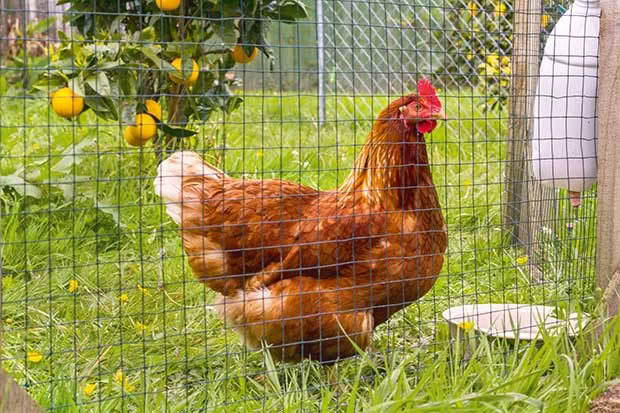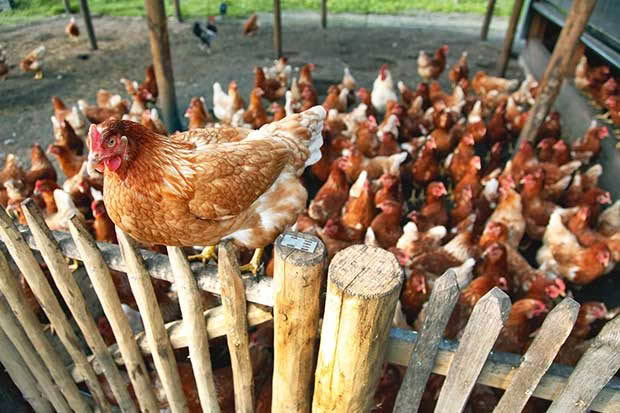The art of the perfect free range for chickens

Going free-range can improve the health of your hens, but there are some factors to consider when letting your hens loose.
Words: Sue Clarke
A good free-range set-up:
• will provide a natural, varied diet of insects, grains, and vegetation, meeting all nutritional needs. A good range will have high protein sources, eg insect life.
• will encourage the drive to scratch, peck, and hunt, which keeps them occupied and entertained.
• can save money as less bought-in feed is required.
• will allow birds to create their own dust bath areas which help to control lice, mites, and feather problems.
• will allow birds to find their own hard insoluble grit to aid digestion in the gizzard. Note, this is not the same as soluble grit (the calcium they require for nutrition) which may need to be supplemented.
• will help them maintain a healthy weight while being physically fit.
• may improve the taste of eggs and meat.
Your hens will help self-manage the range too, by:
• eating many of the bugs within the free-range area.
• spreading manure for you, helping to fertilise your property.
• aerating and turning a compost heap for you.
You will have less or no issues with bullying in your flock as timid birds will have more opportunity to avoid bullies.
THINGS TO BE AWARE OF
Some of the cons of going free-range are directly related to the pros.

• Poultry may not be able to find enough food, especially protein, if a range is denuded of cover and insect life, or they are out in cold or very hot weather.
• You will need to provide a good quality commercial feed at extra cost to make up for what poultry cannot find within the range.
• Egg production may be restricted due to a lack of or incorrect feed.
• Toxic plants can cause health problems, discoloured egg yolks, and can be fatal.
• They’ll eat just about everything, including your favourite flowers and vegetables.
• They can ‘till’ your gardens, even the ones you don’t want them in, meaning you need to build a barrier to keep them out.
• They’ll scratch up your flower and/or vegetable beds to make a dust bath.
• They leave poo everywhere they go, eg on your pathways, decks, lawn.
• They’re at risk for being taken by predators like hawks, stray dogs and cats, stoats etc.
• Chickens may find their way next door and become annoying to your neighbour/s.
• You’ll lose some fertiliser because it won’t be in a confined space for you to collect.
• Unless you’ve trained them to roost in their coop, they won’t go back inside at night where it is safe.
• You may get unexpected flock increases when missing hens come home with chicks.
READ MORE
Love this story? Subscribe now!
 This article first appeared in NZ Lifestyle Block Magazine.
This article first appeared in NZ Lifestyle Block Magazine.
